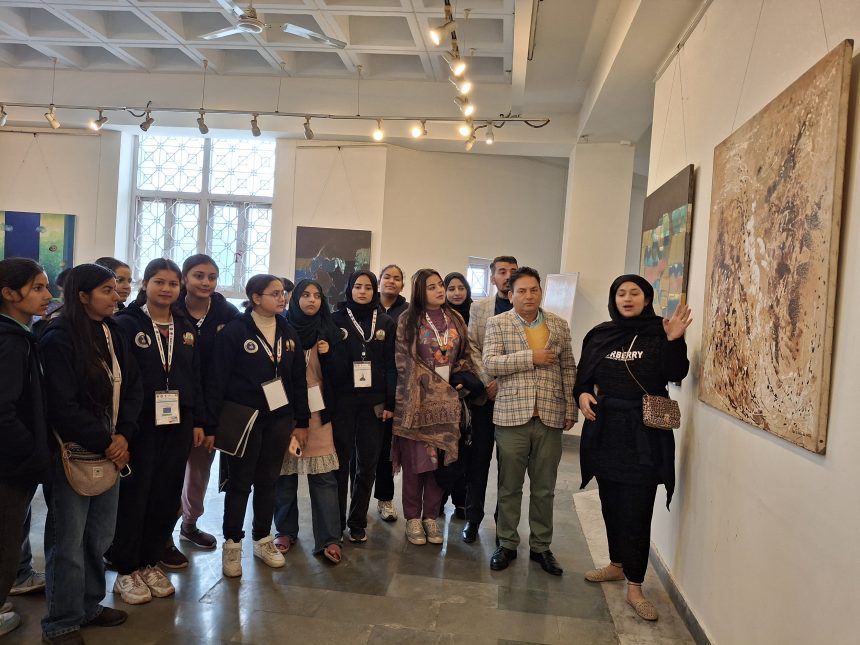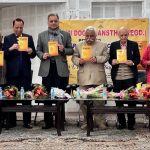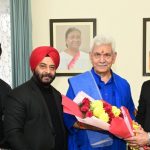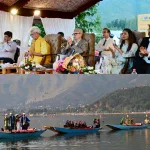Jammu, Jan 08: Two hundred students from women’s degree colleges representing 20 states of India visited Kala Kendra Wednesday as part of the National Integration Camp (NIC), 2025, organized by the Ministry of Youth Affairs and Sports, Government of India, under the aegis of the Higher Education Department, Government of Jammu and Kashmir.
The camp, themed “Women Empowerment and Emancipation”, symbolizing “Nari Shakti”, is being held in Jammu from 3rd to 9th January 2025. The visit aimed to familiarize students with the rich visual and indigenous arts of Jammu and Kashmir.
The presidium for the event featured distinguished academicians and art enthusiasts, including Prof. Masrofa Qadir, Dr. Javaid Rahi, Secretary of the Kala Kendra Society, Dr. Anuradha Chowdhary, Dr. Ritu Manghiya, Dr. Liaqat Jafri, and Dr. Anupam.
Dr. Javaid Rahi, welcomed the faculty and the students and highlighted Jammu and Kashmir’s rich artistic heritage. He emphasized the significant contributions of the region’s visual artists to modern Indian art while also showcasing its vibrant folk traditions, tribal culture, and indigenous art forms.
During their visit, the students explored all eight galleries of Kala Kendra and viewed an impressive exhibition featuring paintings, sculptures, and over 200 artifacts that reflect the artistic diversity and cultural wealth of Jammu and Kashmir.
Addressing the students, Dr. Liaqat Jafri described the National Integration Camp as a flagship initiative of the National Service Scheme (NSS), designed to promote national unity, social harmony, and inclusivity among Indian youth. He further noted the participation of 200 NSS volunteers, 25 Program Officers, and 18 contingents from various states, highlighting India’s rich cultural diversity.
Participants, including Prof. Masrofa Qadir, Dr. Anuradha Chowdhary, Dr. Ritu Manghiya, and Dr. Anupam, shared their experiences and insights about art and their interaction with visual artists.
The visit underscored the role of art in bridging cultural divides and inspiring a collective national identity, leaving a lasting impression on the visiting students.








